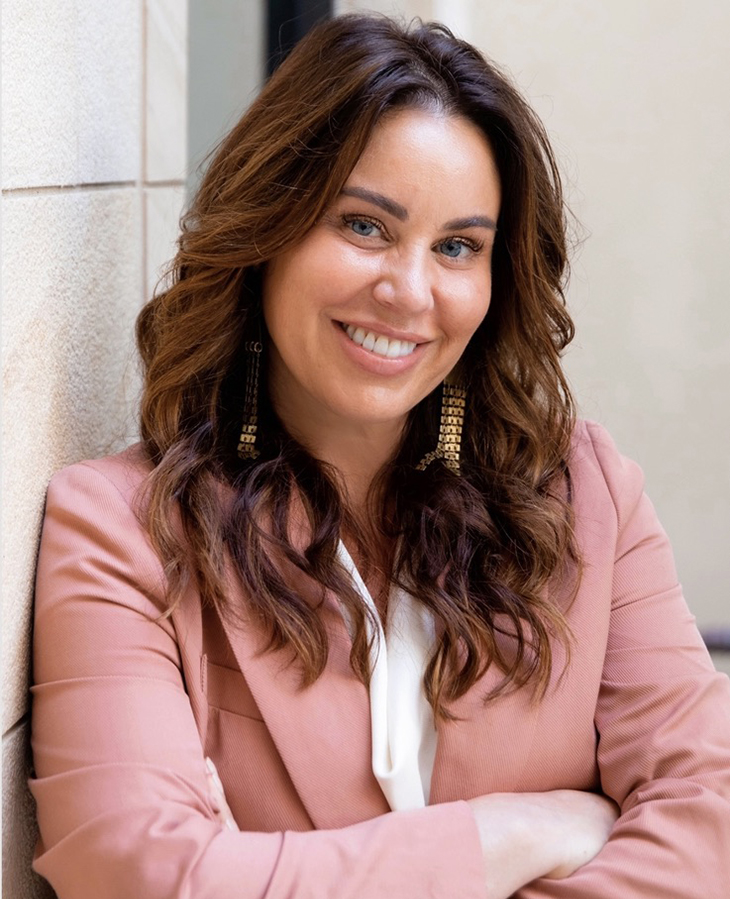
CIHRP director selected for two national committees on health equality, nutrition
Wednesday, February 22, 2023
Media Contact: Sara Plummer | Communications Coordinator | 918-561-1282 | sara.plummer@okstate.edu
Valarie Blue Bird Jernigan, professor of Rural Health and director of the Center for Indigenous Health Research and Policy at OSU Center for Health Sciences, has been appointed to two prestigious national advisory committees — one determining the country’s dietary guidelines and the other looking at how health care disparities have changed in the last 20 years.
Jernigan, who is a member of the Choctaw Nation and has a doctorate in public health, will serve on a committee of the National Academies of Sciences, Engineering, and Medicine examining the current state of racial and ethnic health care disparities in the U.S.
The committee will work to update the Unequal Treatment Report and examine how health care has changed since the report was first published in 2003.
“It was a huge report and a landmark study. Scientists and health professionals looked at equity in health care in the U.S.,” said Jernigan, who remembers reading the report when she was studying public health. “It seems obvious to us now, but at the time the public didn’t know people of color would go in to their provider and be faced with bias that impacted their care. Doctors, providers, nurses, even front desk workers have unconscious bias.”
Jernigan said the report impacted medical and health care curriculum across the country and launched training programs on diversity and bias in health care.
“It was quite a change in how we were learning,” she said, and now she will be part of the committee that will examine the current racial and ethnic disparities in health care to see if those changes in curriculum, training and practice have had an impact.
Jernigan was one of more than 200 people nominated for the committee, which was narrowed down to 18 members.
“I’m a person who works and lives where those disparities are happening. We need more
equity in rural and tribal health where disparities are most significant.”
“I was quite excited by this nomination. My task is looking at how we’ve done in the last 20 years. Have we changed, have we improved,” she said. “I’m a person who works and lives where those disparities are happening. We need more equity in rural and tribal health where disparities are most significant.”
Jernigan will also serve on the U.S. Department of Health and Human Services’ and the U.S. Department of Agriculture’s Dietary Guidelines for Americans Advisory Committee.
She is the first indigenous person to serve on the DGA committee, which reviews current nutrition science and develops an independent report with science-based advice for the USDA and HHA to consider. The report, along with public comments and agency input, will be used to develop the next set of dietary guidelines for the United States.
“I do a lot of work and research in the field of indigenous food systems and nutrition programs. Indigenous food systems have not been represented on this committee until now,” she said. “In the past, some cultural viewpoints and backgrounds have been left out when developing these guidelines. This time around, a real effort was made to get people from a number of diverse backgrounds and cultures to serve on the committee.”
In addition to physicians, dieticians and nutritionists, the new 20-person DGA committee also has public health officials and social scientists serving on it.
“Diet is very confusing. Each week we hear something different about food and nutrition. We’re going to study these diets and try to come up with answers,” Jernigan said. “We have to look at what is actually happening in the food system and is it right. We’ve come a long way, but we still have a lot to do to understand Americans’ diet and health.”
